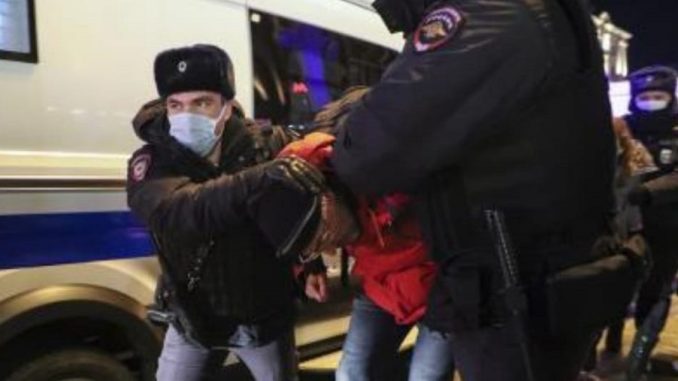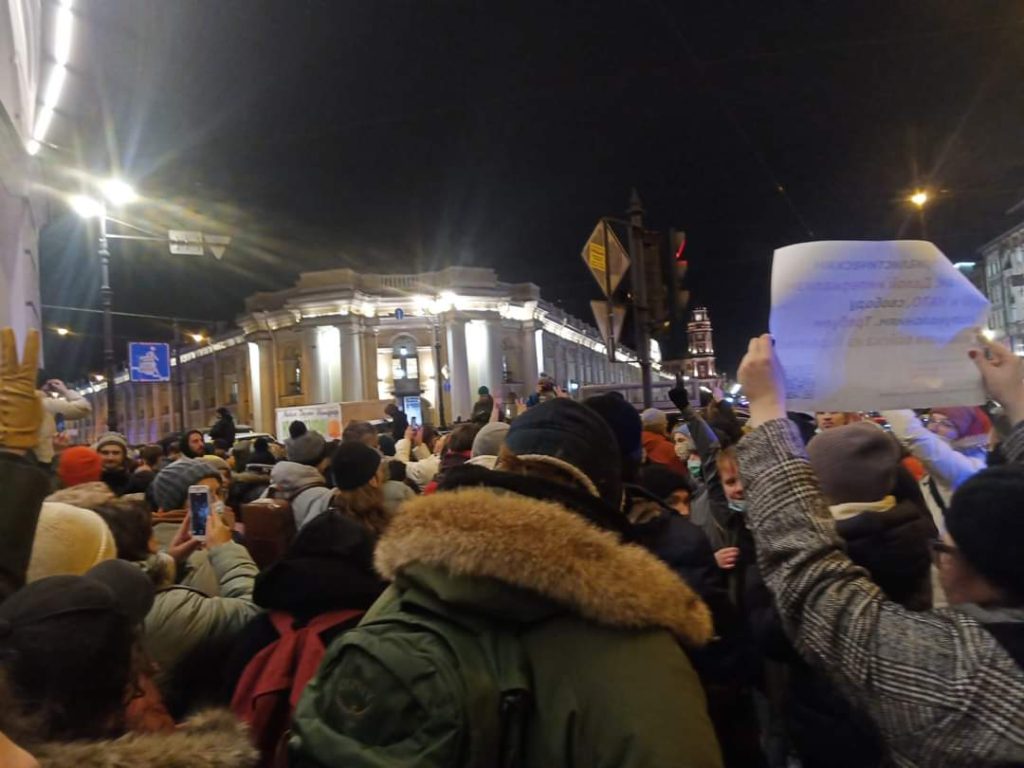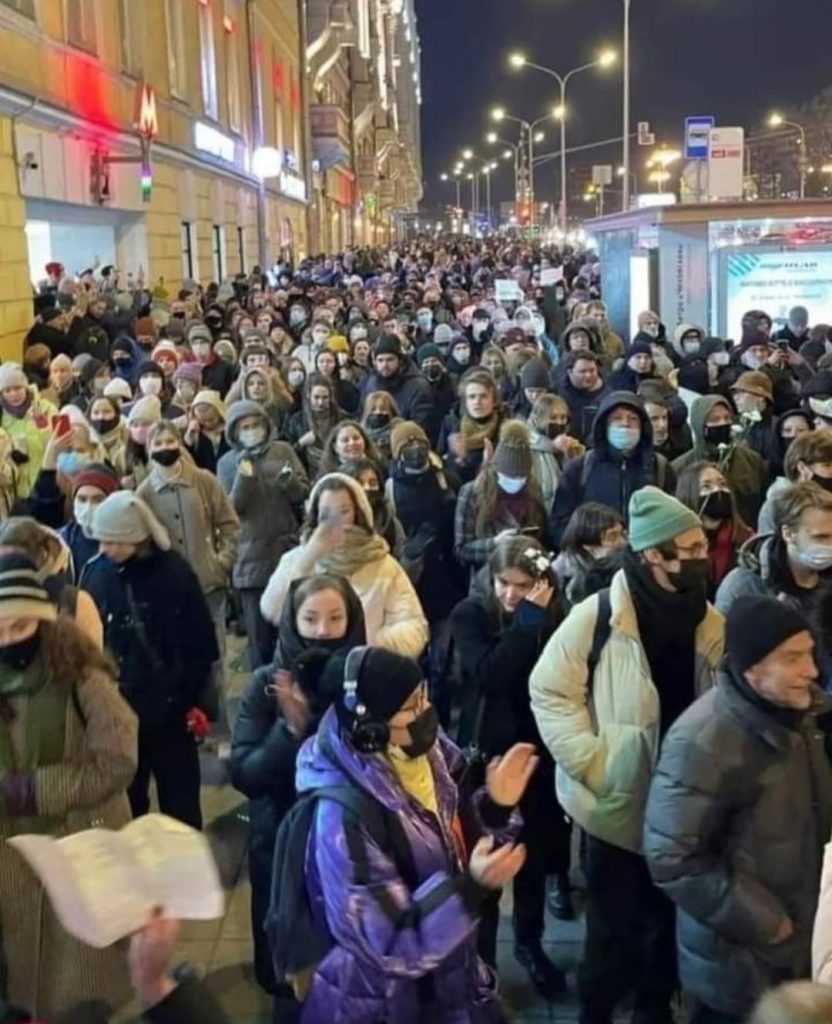
There were mobilizations in 52 Russian cities and more than 1600 people imprisoned by Vladimir Putin’s regime.
By Ruben Tzanoff
As soon as the Russian imperialist aggression against Ukraine was consummated, protest mobilizations began in different countries of the world, including Russia itself. The marches began in Siberia and spread to 52 cities, reaching St. Petersburg and Moscow. They were led by young workers, intellectuals, journalists and human rights activists, with improvised anti-war posters. Broad sectors of the population feel anger and shame for the aggression against “their Ukrainian brothers”.
Unrest in the streets
Although the protests are embryonic, this is a significant development. Taking to the streets to confront the decisions of an authoritarian regime, in the midst of an expansionist crusade, is a courageous decision. Stopping the aggression will depend to a large extent on a great international mobilization, powerful in Russia itself, with the formation of a great movement for the withdrawal of the invading troops from Ukrainian territory.
Balance in doubt
For the time being, it is not very clear how the balance of support and rejection is tipping. What is clear is that, this time, the aggression against Ukraine has started differently than in 2014, when Putin annexed Crimea. At that time there was a propaganda campaign focused on demonstrating popular support. That did not happen with the recognition of the Donetsk and Luhansk “Republics” and the first thing that was expressed was street rejection.
It is no coincidence that in social media messages from artists, singers, musicians and TV presenters with their photos on a black background and the hashtag #nowar are multiplying. The messages are coincidental: “Nobody needs this war”.
Repression, the usual response
Putin’s authoritarian regime responded to the mobilizations with institutional violence. Riot police again cracked down on participants and there were more than 1600 recognized arrests. In Moscow alone there were almost 900 detainees. There were also arrests in St. Petersburg. At this exact time, there are comrades aligned with the ISL who remain in prison, awaiting the decision of the authorities, who often make up administrative and/or criminal charges, under threat of long prison terms.

No more cutting democratic freedoms
In Belarus and Kazakhstan Putin’s partners used the cruelest forms of violence against demonstrators, provoking deaths, injuries and mass arrests to liquidate mobilizations. Russia does the same when the opposition is in the streets, when there are workers’, feminists’ or environmental demands. It is not surprising that repression is worsening. It is necessary to demand the freedom of all those imprisoned for expressing themselves against the war, without administrative or penal causes, at the same time as demanding an end to the cuts in democratic freedoms.
Internationalism and fraternity among the workers and the peoples
We have been denouncing both the aggression of Russian imperialism and the presence of Western imperialism in Eastern Europe, with its expansionist desires expressed with NATO weapons in our declarations and articles, and we were part of the actions carried out in different cities of the world. The International Socialist League is active through the comrades of the Ukrainian Socialist League in the attacked country. With the Russian comrades and activists who bravely stand up to Putin. With the comrades and friends in Belarus who resist dictator Alexander Lukashenko. And all the sections of the ISL, present on five continents, will continue to promote solidarity with the Ukrainian people with an international campaign. The bloodshed service of imperialist ambitions must be stopped, hand in hand with the mobilization and brotherhood of the workers and peoples.









